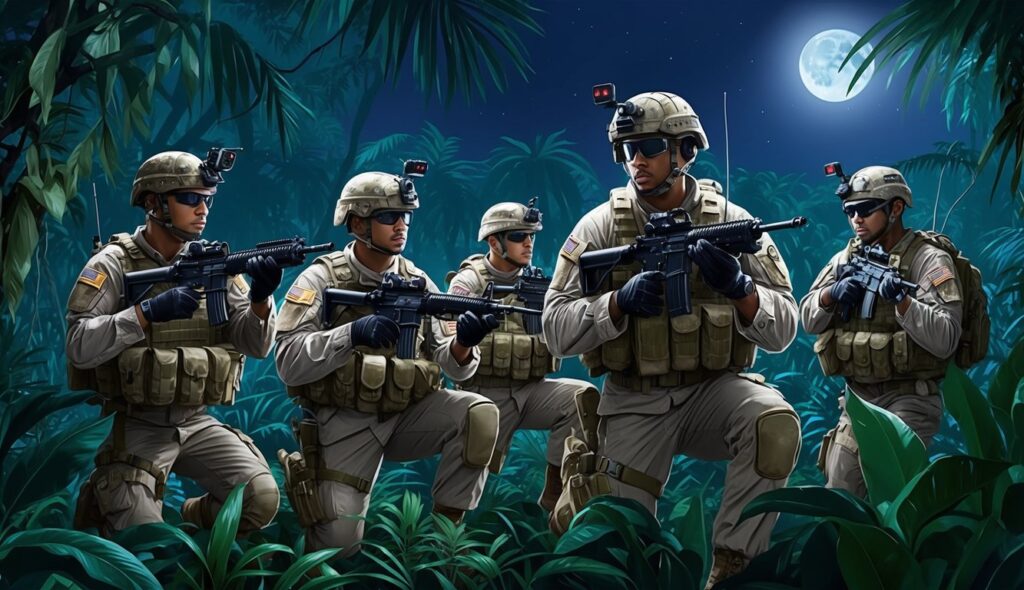Army MOS 18X is a unique opportunity for civilians to join the elite ranks of U.S. Army Special Forces, also known as Green Berets. This program allows you to enlist directly into Special Forces training without prior military experience. As an 18X candidate, you’ll undergo rigorous physical and mental challenges to become one of the most highly skilled soldiers in the world.
The 18X program offers an accelerated path to becoming a Special Forces operator. You’ll start with basic training, followed by advanced individual training and airborne school. Then, you’ll face the demanding Special Forces Assessment and Selection (SFAS) course. If selected, you’ll move on to the Special Forces Qualification Course, where you’ll develop specialized skills in one of four areas: weapons, engineering, medical, or communications.
Signing up for MOS 18X can come with significant financial incentives. As of 2023, enlistment bonuses of up to $40,000 were available for qualified candidates. However, these bonuses can change, so speaking with a recruiter is the best way to get current information.
Key Takeaways
- MOS 18X offers a direct path to Special Forces for civilians with no prior military experience
- The program includes intense physical and mental training, culminating in the Special Forces Qualification Course
- Successful 18X candidates become Green Berets, specializing in weapons, engineering, medical, or communications roles
Understanding 18X: The Special Forces Candidate Program
The 18X program offers a direct path to joining the Army’s elite Special Forces. As an 18X candidate, you’ll undergo rigorous training to become a Green Beret, facing intense physical and mental challenges along the way.
Overview of MOS 18X
MOS 18X is a unique enlistment option that allows you to attempt Special Forces qualification right from the start of your Army career. This program typically requires a 6-year commitment. As an 18X recruit, you’ll begin with basic training and advanced individual training before moving on to specialized courses.
The 18X path includes:
• Basic Combat Training
• Advanced Individual Training as an infantryman
• Airborne School
• Special Forces Preparation Course (SFPC)
The SFPC at Fort Bragg helps prepare you for the challenges ahead. It focuses on improving your physical fitness, land navigation skills, and mental resilience.
Path to Becoming a Special Forces Soldier
Your journey to earning the Green Beret involves several demanding stages. After completing initial training, you’ll face the grueling Special Forces Assessment and Selection (SFAS) course. This intense evaluation tests your physical stamina, mental toughness, and problem-solving abilities.
If you pass SFAS, you’ll move on to the Special Forces Qualification Course (SFQC). This extensive training covers:
• Language and culture
• Survival skills
• Advanced tactical combat techniques
• Specialized training in one of four areas: weapons, engineering, medical, or communications
The entire process can take up to two years. It’s a challenging path, but for those who succeed, it leads to joining one of the most respected and skilled units in the U.S. military.
Eligibility and Requirements
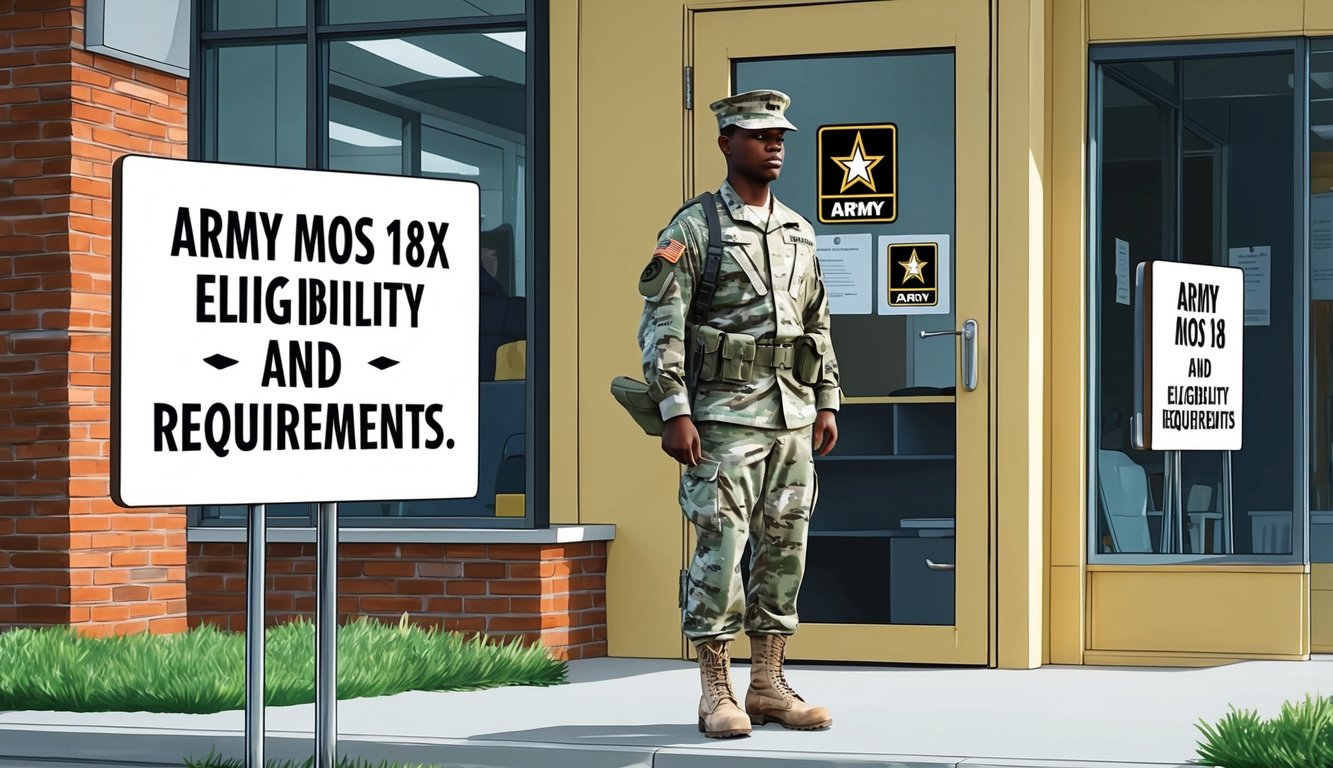
Joining the Army’s Special Forces as an 18X requires meeting strict criteria. You’ll need to clear several hurdles before embarking on this elite career path.
Initial Qualifications
To be eligible for the 18X program, you must be a U.S. citizen between 20 and 34 years old. You’ll need a high school diploma or equivalent. If you’re already serving, you should be an E-3 or above, with no more than 14 years of service. A clean criminal record is essential, as is a Secret security clearance. Volunteering for Airborne training is mandatory. You’ll also need to sign up for at least a 5-year enlistment contract.
ASVAB and General Technical Score
Your ASVAB scores play a crucial role in qualifying for 18X. You’ll need to achieve a minimum General Technical (GT) score of 110. This score combines your Word Knowledge, Paragraph Comprehension, and Arithmetic Reasoning results. A higher score can improve your chances of selection. If you don’t meet the GT requirement initially, you may be able to retake the test after some study time.
Physical and Medical Standards
Physical fitness is paramount for Special Forces candidates. You must pass the Army Physical Fitness Test with high scores. Aim for at least 60 points in each event: push-ups, sit-ups, and a two-mile run. Being able to swim is also crucial. You’ll undergo a thorough medical examination to ensure you’re fit for the demanding training ahead. Good vision is important, but corrective eye surgery is often acceptable if it meets military standards.
Height and Weight Requirements
Meeting the Army’s height and weight standards is non-negotiable. Your weight must be proportional to your height according to Army regulations. For example, if you’re 68 inches tall, your maximum allowable weight is 180 pounds. If you exceed the weight limit, your body fat percentage becomes a factor. Men must not exceed 20% body fat, while women must be under 30%. Maintaining these standards throughout your career is essential for staying in Special Forces.
Training Pipeline for MOS 18X
The journey to become a Special Forces soldier through the 18X program is intense and demanding. You’ll progress through several challenging phases of training to earn your Green Beret.
Basic Combat Training
Your 18X journey begins with 10 weeks of Basic Combat Training (BCT) at Fort Jackson, Fort Benning, Fort Leonard Wood, or Fort Sill. You’ll learn fundamental soldiering skills like:
• Weapons handling and marksmanship
• Land navigation
• First aid
• Military customs and courtesies
Physical fitness is a major focus. You’ll do daily PT to build strength and endurance. Expect long ruck marches carrying heavy loads.
One Station Unit Training
After BCT, you’ll complete 6 weeks of Infantry One Station Unit Training (OSUT) at Fort Benning. This builds on your basic skills with:
• Advanced weapons training
• Small unit tactics
• Urban operations
You’ll face more intense physical challenges. Ruck marches get longer and heavier. You must pass the Army Physical Fitness Test with high scores to continue.
Airborne School
Next up is a 3-week Airborne course at Fort Benning. You’ll learn parachuting techniques and earn your jump wings. Key elements include:
• Parachute landing falls
• Aircraft exit procedures
• Canopy control
You’ll make 5 jumps, including 1 night jump. It’s physically and mentally demanding. You must overcome any fear of heights.
Special Operations Preparation Course
The 4-week Special Operations Preparation Course (SOPC) at Fort Bragg is your first taste of Special Forces training. It focuses on:
• Land navigation
• Small unit tactics
• Physical conditioning
You’ll do grueling PT sessions and long ruck marches. The course weeds out candidates who aren’t ready for SFAS.
Special Forces Assessment and Selection
SFAS is a 24-day crucible that tests your physical and mental limits. You’ll face:
• Timed ruck marches up to 40 miles
• Problem-solving exercises
• Sleep deprivation
• Psychological evaluations
Only about 35% of candidates pass. Those who do earn a slot in the Special Forces Qualification Course.
Special Forces Qualification Course
The Q Course is 53-64 weeks of intense training at Fort Bragg. You’ll learn advanced skills in:
• Weapons and tactics
• Engineering and demolitions
• Medical treatment
• Communications
The culminating event is Robin Sage, a 19-day field exercise. You’ll practice unconventional warfare in a simulated hostile environment.
Language Training and Assignment
Your final step is 24-63 weeks of language training. The length depends on the difficulty of your assigned language. You’ll develop conversational skills to communicate with indigenous forces.
After graduation, you’ll be assigned to an operational Special Forces Group. Your journey as a Green Beret is just beginning.
Special Forces MOS Options After the 18X Program
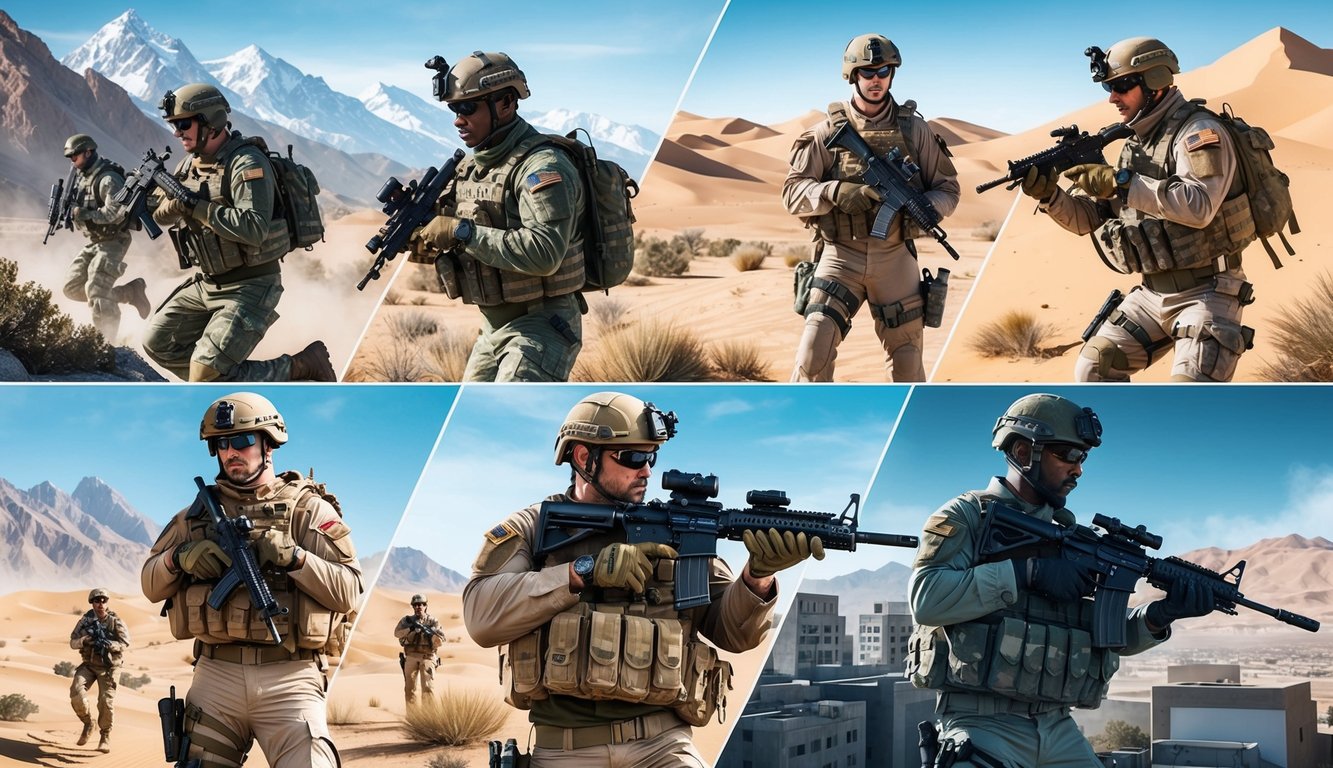
Upon completing the 18X program, you’ll have several specialized career paths to choose from within Special Forces. Each role requires unique skills and offers distinct responsibilities crucial to mission success.
Weapons Sergeant (MOS 18B)
As a Weapons Sergeant, you’ll become an expert in a wide array of weapons systems. Your duties include:
- Mastering U.S. and foreign small arms, crew-served weapons, and anti-tank weapons
- Planning and conducting weapons training for team members and partner forces
- Advising on weapon selection for specific missions
- Maintaining and repairing various weapon systems
You’ll also develop skills in demolitions and become proficient in air operations and anti-armor tactics. This role is ideal if you have a passion for firearms and enjoy teaching others.
Engineer Sergeant (MOS 18C)
Engineer Sergeants are the construction and demolition experts of Special Forces teams. In this role, you’ll:
- Design and build field fortifications, bridges, and other structures
- Plan and execute demolitions missions
- Train team members and partner forces in engineering tasks
- Conduct reconnaissance of roads, airfields, and urban areas
Your expertise will be crucial in both combat and humanitarian missions. You’ll need to be creative, detail-oriented, and able to work under pressure.
Medical Sergeant (MOS 18D)
As a Medical Sergeant, you’ll be responsible for the health and well-being of your team and local populations. Your duties include:
- Providing emergency and routine medical care in austere environments
- Conducting medical training for team members and partner forces
- Managing medical supplies and equipment
- Assisting in humanitarian aid missions
This role requires extensive medical training, including advanced trauma management and preventive medicine. You’ll need to be calm under pressure and have a strong desire to help others.
Communications Sergeant (MOS 18E)
Communications Sergeants are vital for maintaining contact between team members and higher command. In this role, you’ll:
- Operate and maintain sophisticated communication equipment
- Establish secure communication networks in remote areas
- Train team members and partner forces in communication procedures
- Assist in intelligence gathering through signal interception
You’ll need to be tech-savvy and able to troubleshoot complex systems in challenging environments. This role is perfect if you enjoy working with cutting-edge technology.
Intelligence Sergeant (MOS 18F)
As an Intelligence Sergeant, you’ll be the team’s expert on gathering and analyzing information. Your responsibilities include:
- Collecting and interpreting intelligence from various sources
- Conducting area studies and threat assessments
- Training team members and partner forces in intelligence gathering techniques
- Assisting in mission planning based on intelligence findings
This role requires strong analytical skills and the ability to think critically under pressure. You’ll need to be detail-oriented and have excellent communication skills to convey complex information effectively.
Career Progression and Opportunities
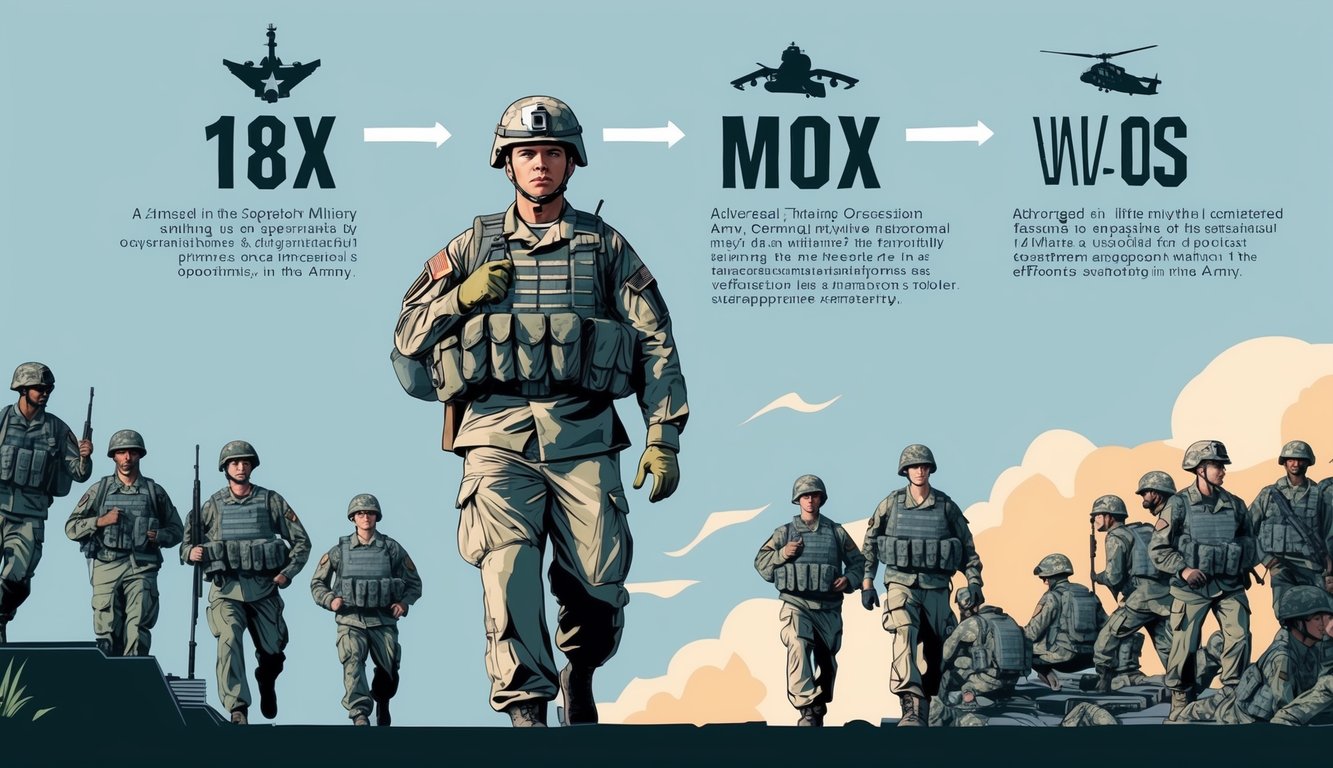
As an Army 18X Special Forces candidate, you’re embarking on an exciting and challenging career path. Your journey begins with basic training and advanced individual training, followed by the grueling Special Forces Assessment and Selection (SFAS) course.
If you pass SFAS, you’ll move on to the Special Forces Qualification Course (SFQC). This intensive training will prepare you for your role as a Green Beret. You’ll develop skills in weapons, tactics, language, and cultural awareness.
Upon completing SFQC, you’ll be assigned to an Operational Detachment Alpha (ODA) team. Here’s a glimpse of potential rank progression:
- Sergeant (E-5)
- Staff Sergeant (E-6)
- Sergeant First Class (E-7)
- Master Sergeant (E-8)
- Sergeant Major (E-9)
As you advance, you may have opportunities to become a team sergeant or operations sergeant. You could also pursue roles in training, leadership, or special assignments within the Special Forces community.
The Army offers competitive pay and benefits for Special Forces soldiers. You may qualify for enlistment bonuses and special duty pay. Continuing education is encouraged, with opportunities to earn college credits and degrees during your service.
Your Special Forces career can open doors to various civilian careers after military service. Many veterans find success in law enforcement, security consulting, or government agencies.
The 18X path is demanding but rewarding. It requires dedication, physical fitness, and mental toughness. Are you ready for the challenge?
Skills and Specializations Within the Special Forces
Special Forces soldiers develop a diverse set of advanced capabilities to carry out complex missions. These skills span combat, intelligence gathering, relationship building, and specialized tactical operations.
Unconventional Warfare
You’ll master the art of working with and through indigenous forces to achieve military objectives. This involves training and equipping local groups, conducting sabotage operations, and gathering intelligence in hostile territory.
You’ll learn to blend in with local populations and operate covertly for extended periods. Adaptability and cultural awareness are key as you navigate complex political landscapes.
Foreign Internal Defense
Your role will include training allied nations’ militaries to combat insurgencies and maintain stability. You’ll develop skills in mentoring foreign troops, planning joint operations, and advising on counterinsurgency tactics.
Language proficiency and cross-cultural communication become vital as you build relationships with partner forces. You may find yourself living among local units for months at a time to provide ongoing support.
Direct Action
You’ll become an expert in conducting raids, ambushes, and other short-duration strikes against high-value targets. This involves mastering advanced infantry tactics, breaching techniques, and close-quarters combat.
Precision shooting, demolitions, and airborne infiltration are some key skills you’ll hone. You’ll learn to plan and execute complex assaults using limited resources in hostile environments.
Counterinsurgency and Counterterrorism
Your training will cover strategies for combating insurgent and terrorist groups. This includes gathering human intelligence, identifying threats, and conducting targeted operations to disrupt enemy networks.
You’ll develop skills in asymmetric warfare, psychological operations, and working with local populations to counter extremist influence. Understanding the political and social dynamics driving conflicts is crucial.
Reconnaissance and Surveillance
You’ll learn advanced techniques for gathering intelligence in denied areas. This involves operating sophisticated surveillance equipment, conducting long-range reconnaissance patrols, and reporting critical information.
Skills like camouflage, stealth movement, and evasion become second nature. You may spend days or weeks observing targets while avoiding detection in harsh conditions.
Combat and Tactics
Mastery of infantry weapons and small unit tactics forms the foundation of your skillset. You’ll become proficient with a wide range of firearms, explosives, and specialized equipment.
Advanced medical training prepares you to treat combat injuries in austere environments. You’ll also learn to operate vehicles like the Ground Mobility Vehicle for rapid deployment and extraction.
Operational Environment and Deployment
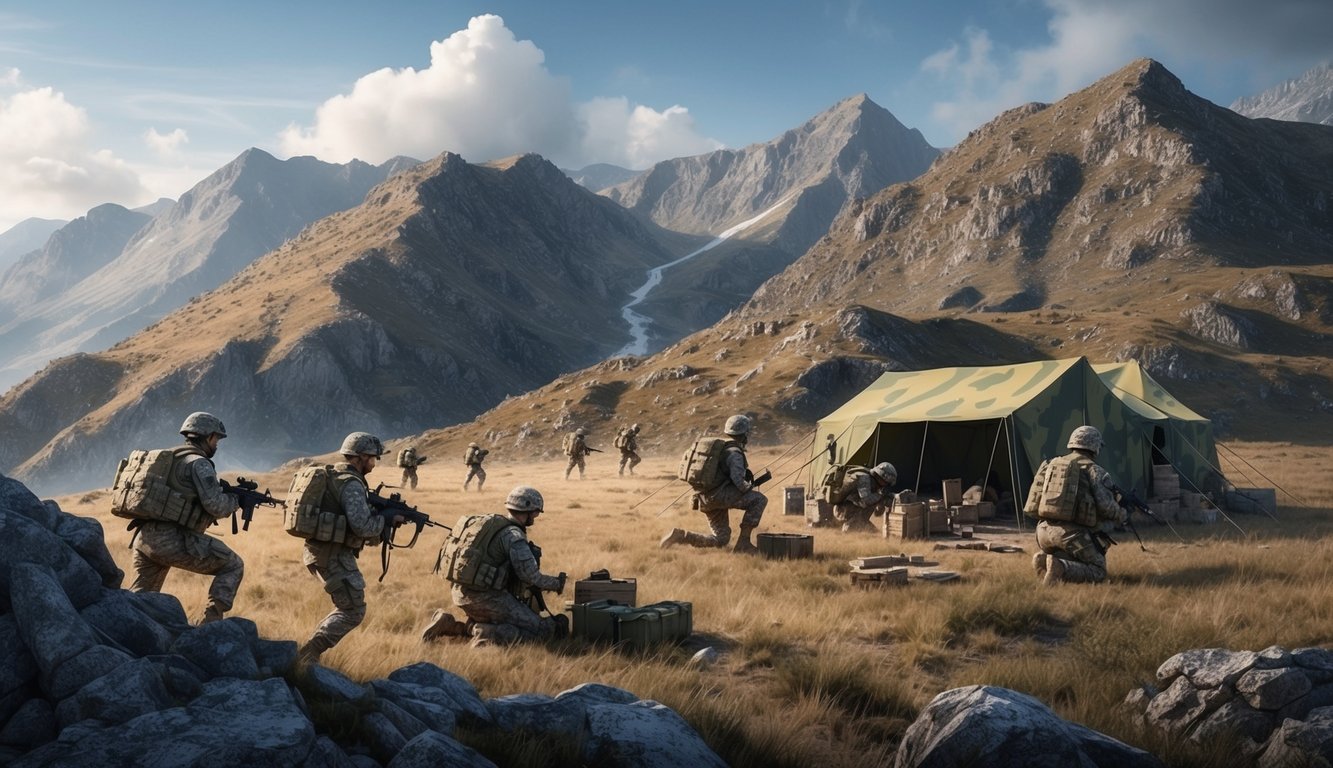
Special Forces soldiers operate in complex, high-risk environments worldwide. You’ll face diverse challenges as an 18X, from counter-terrorism missions to training foreign allies.
History and Past Engagements
Green Berets have a storied history of deployments dating back to the Vietnam War. In recent decades, you’d likely have served in Afghanistan or Iraq during the Global War on Terror.
These conflicts saw Special Forces units conducting village stability operations, training local forces, and carrying out direct action missions against high-value targets. Your role might have included:
• Embedding with Afghan commandos
• Advising Iraqi counter-terrorism forces
• Conducting reconnaissance in hostile territory
The lessons learned from these engagements continue to shape Special Forces doctrine and training today.
Current Operational Detachments
As an 18X, you’ll join an Operational Detachment Alpha (ODA) – a 12-man team of Green Berets. These small, elite units deploy globally to tackle complex missions.
Your ODA might be tasked with:
- Training partner nation forces in Africa
- Conducting counter-narcotics operations in South America
- Supporting counter-insurgency efforts in the Middle East
You’ll need to adapt quickly to different cultures and operational environments. One deployment might have you living in remote villages, while the next could involve urban operations.
ODAs often work independently, far from conventional support. This autonomy requires you to be versatile and self-reliant in challenging conditions.
Life After Special Forces
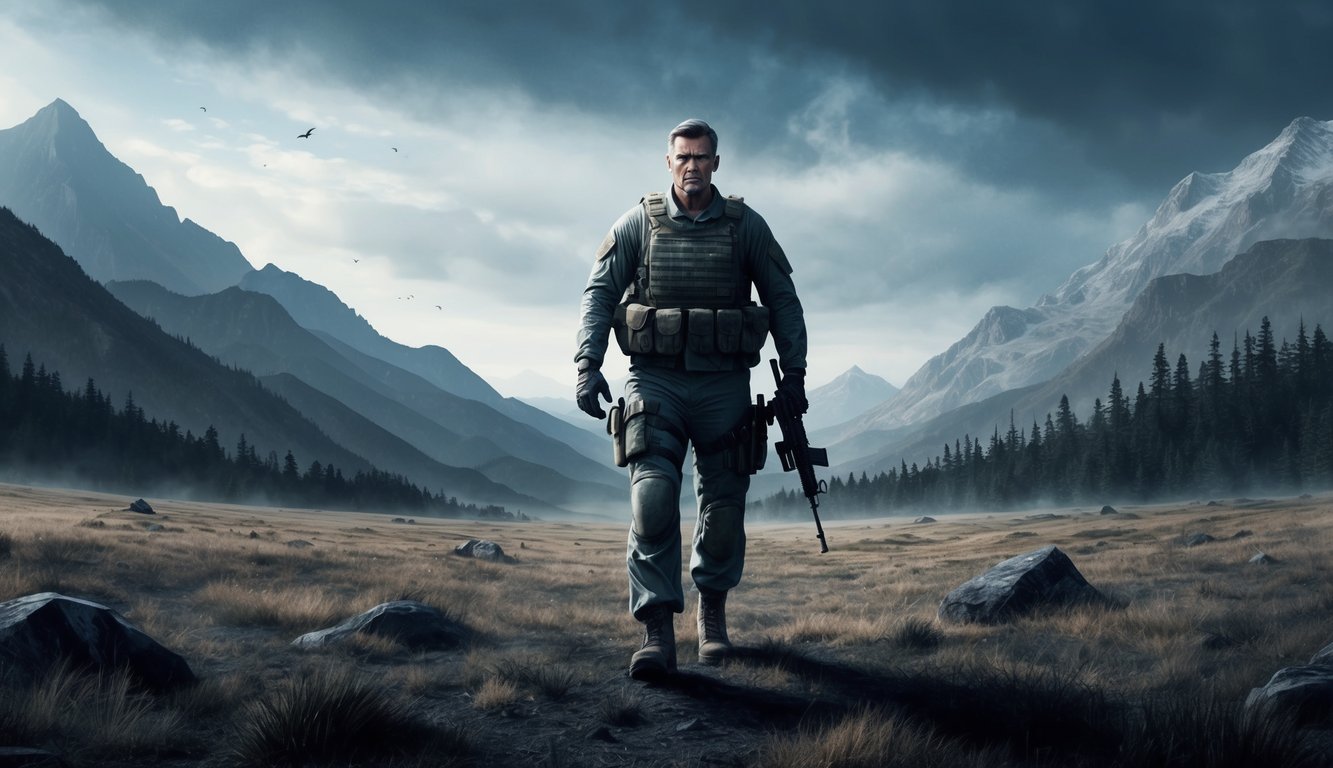
Transitioning from Special Forces to civilian life can be a significant adjustment. You’ll find many career opportunities that value your unique skills and experiences.
Many former Green Berets pursue jobs in law enforcement, private security, or government agencies. Your specialized training makes you an attractive candidate for these roles.
Some veterans choose to leverage their leadership skills in corporate settings. Project management, team leadership, and consulting are popular paths.
The military mindset and discipline you’ve developed can be assets in entrepreneurship. Many Special Forces veterans start their own businesses or become independent contractors.
Continuing education is another option. Your GI Bill benefits can help you pursue advanced degrees or technical certifications.
Don’t forget about the support available through Veteran Affairs. They offer resources for career counseling, healthcare, and mental health services.
Staying connected with the Special Forces community can be valuable. Alumni networks and veteran organizations provide support and networking opportunities.
Frequently Asked Questions
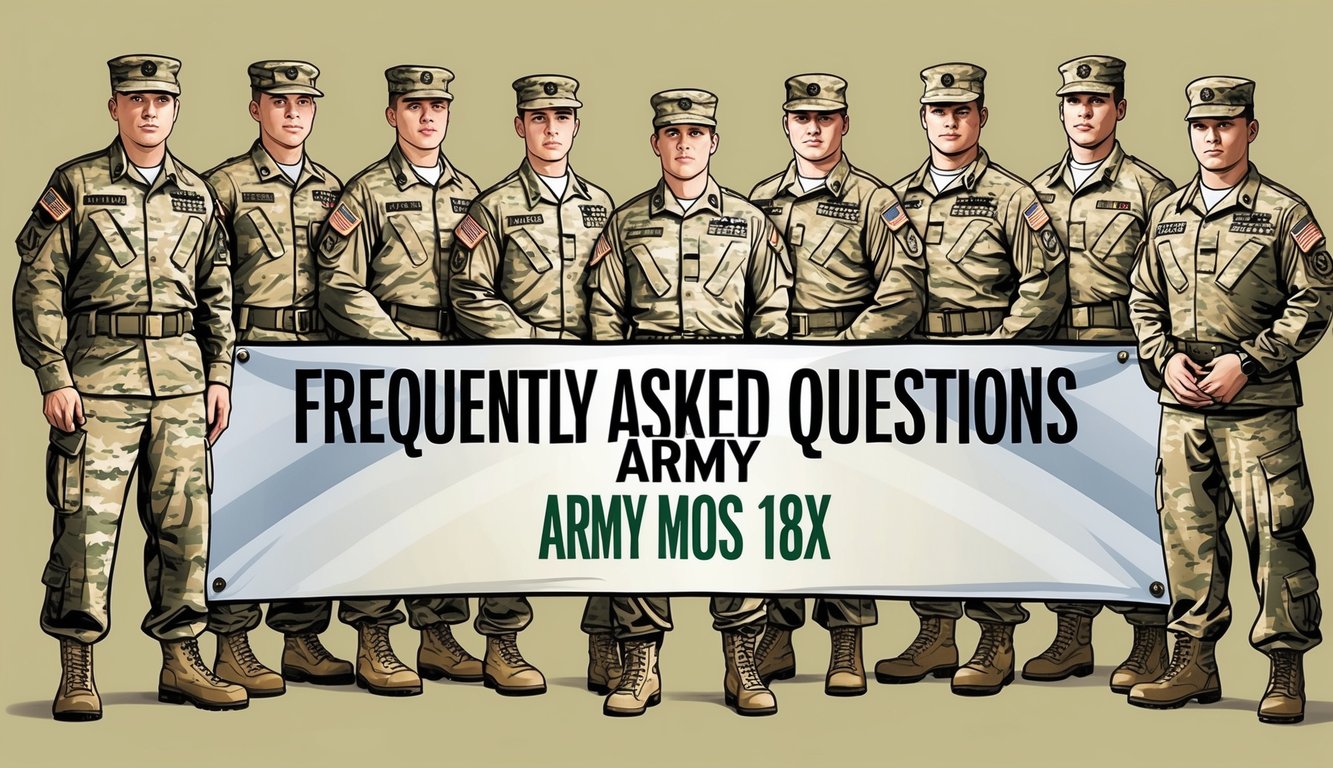
Joining the Army’s 18X program involves meeting specific qualifications and understanding key aspects of the role. Let’s address some common queries about this Special Forces career path.
What’s the maximum age to enlist in the 18X program?
The maximum age to enlist in the 18X program is typically 35 years old. However, age waivers may be available in certain circumstances, especially for candidates with valuable skills or prior military experience.
How much does an 18X soldier typically earn?
18X soldiers’ pay varies based on rank and experience. As a new recruit, you’ll start at the E-4 pay grade. With additional skills and qualifications, your salary can increase significantly over time.
What are the specific requirements to qualify for MOS 18X?
To qualify for MOS 18X, you need a minimum ASVAB score of 110 in the General Technical category and 100 in Combat. You must also be a U.S. citizen, pass a rigorous physical fitness test, and obtain a Secret security clearance.
Can you tell me how long the contract is for an 18X enlistee?
The standard contract length for 18X enlistees is typically 5 years. This duration allows time for training and a substantial period of service in Special Forces if you successfully complete the qualification process.
What kind of physical shape do I need to be in for the 18X MOS?
You should be in excellent physical condition for the 18X MOS. Prepare for intense cardio, strength training, and endurance exercises. Focus on running, swimming, push-ups, pull-ups, and ruck marches to meet the demanding physical requirements.
Are there different roles within the Special Forces I can get through the 18X route?
Yes, the 18X route can lead to various Special Forces roles. These roles include weapons sergeant, engineering sergeant, medical sergeant, communications sergeant, and intelligence sergeant. Your specific role will depend on your aptitudes and the needs of the Army.
